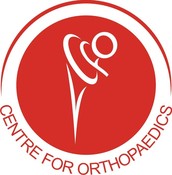|
|

|
« Back
How realistic is it to expect cartilage replacement to turn around arthritis in my knee? I'm 42 years old and trying to avoid having a knee replacement. Would having a procedure called matrix autologous cartilage transplantation (my surgeon just calls it MATC) do this for me? I'm looking at all options.
|
|
Matrix autologous cartilage transplantation is a tissue bioengineering treatment designed to help cartilage regenerate itself. There are three main goals of the MACT procedure. One is simply to provide the patient with pain relief. A second is to stop (or at least slow down) the progression of osteoarthritis. And the third is to eliminate the need for a joint replacement, especially in young patients.
MACT is a three-step process: first normal, healthy cartilage cells are taken from a non weight-bearing area of the patient's own knee. Then these cells are transferred to a lab where they are placed on a special scaffold. More cells are grown (forming a matrix). The last step is to implant the bioengineered tissue into the defect.
Studies show that in the short-term, this procedure works quite well for most patients. It does take quite a while for the graft to take and mature. But over time, the results start to deteriorate. As a salvage procedure, it still might buy some time before having a knee replacement, which is a much more extensive procedure.
In a study from Italy, surgeons looked at long-term outcomes using the matrix autologous chondrocyte transplantation in younger adults. They reported the best results in patients who did NOT have a previous meniscectomy partial or complete removal of the meniscus). But 40 per cent of the group were unhappy with the results and would not have the procedure done if they had to do it over again.
Despite those findings, surgeons say this procedure is still a good option for some patients (especially young adults) trying to avoid or put off joint replacement. Matrix autologous chondrocyte transplantation is an acceptable salvage procedure in these circumstances. Patients must be advised by their surgeons what to expect in order to be realistic about the potential for poor long-term results.
|
References:
|
|
|
« Back
|
|
|
|
*Disclaimer:*The information contained herein is compiled from a variety of sources. It may not be complete or timely. It does not cover all diseases, physical conditions, ailments or treatments. The information should NOT be used in place of visit with your healthcare provider, nor should you disregard the advice of your health care provider because of any information you read in this topic. |
 | All content provided by eORTHOPOD® is a registered trademark of Mosaic Medical Group, L.L.C.. Content is the sole property of Mosaic Medical Group, LLC and used herein by permission. |
|
